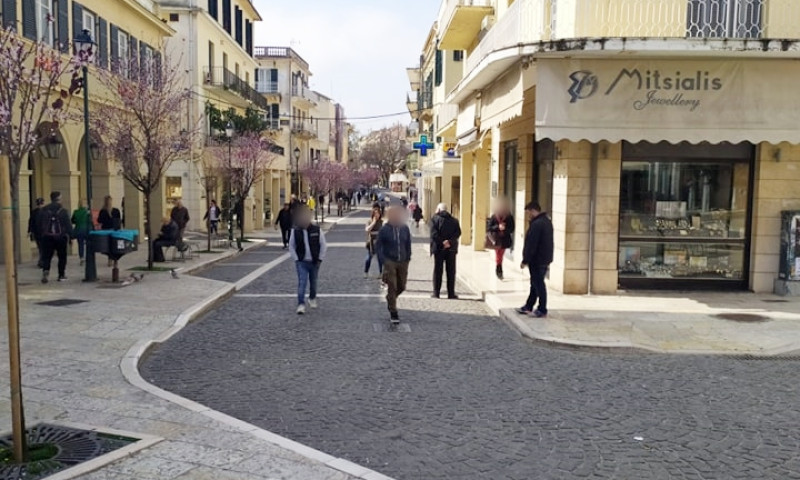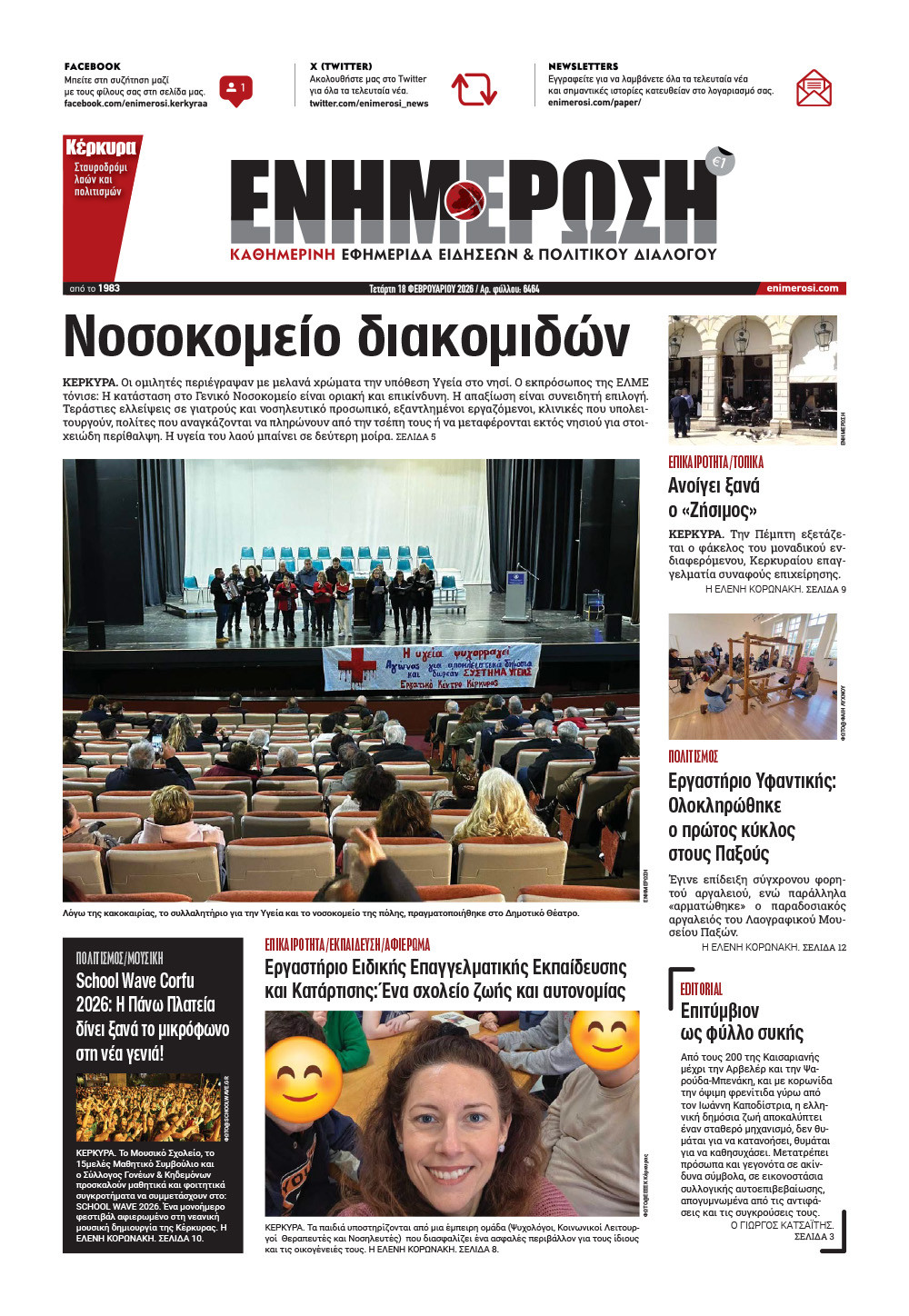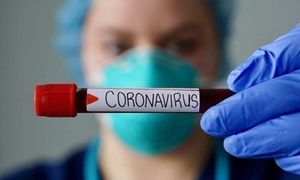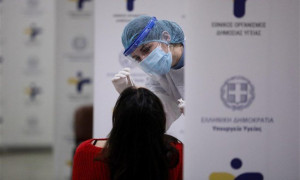All you need to know about the movement ban

movement ban
22 Mar 2020
/ 18:53
18 Q & A regarding the movement ban throughout Greece - Who it applies to and the exceptions - How to send an SMS - What happens with businesses
1. What does a movement ban for citizens mean and why is this measure being taken now?
The ease with which coronavirus is spread seriously endangers the health of vulnerable groups and puts enormous pressure on the health system which will need to provide care for a large number of patients at the same time. This can clearly be seen from the hospitals in other countries where measures were not taken in time. The movement ban with specific exceptions and strict restrictions breaks the chain of infection and keeps us healthy at home avoiding serious problems. Based on the experiences of other countries, this needs to happen now.
2. When does the movement ban come into force?
From Monday 23 March at 06:00 until 6 April at 06:00.
3. Does the measure apply to specific areas or the whole country?
It applies to whole of Greece without exception.
4. Are there exceptions - people aren't obliged to implement it?
Yes, there are exceptions. Those serving in the security forces and Armed Forces, medical and nursing personnel and authorised Civil Protection personnel carrying out their duties.
5. In which instances is movement allowed?
The following movements will be allowed:
a. Travel to and from work during working hours.
b. Visits to chemists or doctor if this has been advised following previous communication.
c. Travel to open shops for basic necessities (supermarket, mini market) when delivery is not possible.
d. Travel to banks if online transactions are not possible.
e. Travel to provide assistance to people in need.
f. Travel to ceremonies (e.g. funerals, weddings, christenings) under the current legal restrictions. Travel for divorced or separated parents to ensure contact between parents and children, under the current legal restrictions.
g. Physical exercise outdoors or walking pets - limited to one or two people following the guidelines for 1.5m distance between the two.
h. Travel to one's permanent home from elsewhere.
6. Who will monitor the above exceptions and how?
The Greek Police will be checking on people's movements along with Municipal Police, Port Authorities in their areas and the National Transparency Administration. Citizens must have their ID or passport with them plus the movement permission certificate.
7. Will there be fines for those who violate the ban?
Yes. There will be a fine of 150 Euros for each violation.
8. What is the movement permission certificate?
There are two types of document. The first (Type A) is for the movement of employees which is completed once and the employer or legal representative who signs it carries personal responsibility. Self-employed people sign it themselves and also carry personal responsibility. The document includes the name, home address and work address of the person concerned as well as the start and finish times. It has to be carried whenever travelling to and from work.
9. What happens with the other types of movement that are allowed?
For the other types of movement (supermarket, chemists, bank etc.) the individual has to fill in a Type B document on each occasion with name and address, destination and the reason for the journey.
10. Where can one get these certificates?
The certificates can be obtained from the site forma.gov.gr and filled in by the individual. You can download, fill in and carry with you one of the following:
- Workers Free Movement Permission (PDF)
- Workers Free Movement Permission (Word)
- Citizens Exceptional Travel Declaration (PDF)
- Citizens Exceptional Travel Declaration (Word)
Handwritten forms can also be completed if access to the site is not possible. The handwritten form needs to have the following information:
Name
Address
Reason for journey and which exception category along with address of destination
Date, time and signature
11. Can I declare my movements in another way (e.g. mobile phone) so as not to have a handwritten document?
Yes, you can send a free SMS to 13033 directly from your mobile phone each time you wish to leave home. Name and address need to be given along with the reason for leaving home (5. b-h). The SMS must take the following form:
X space First Name space Surname space Address
X = the reason for journey from one of the numbers 1, 2, 3, 4, 5, 6 corresponding to the following:
1. Visit to chemists or doctor if this has been advised following previous communication.
2. Visit to open shops for basic necessities (supermarket, mini market) when delivery is not possible.
3. Visit to banks if online transactions are not possible.
4. To provide assistance to people in need.
5. Travel to ceremonies (e.g. funerals, weddings, christenings) under the current legal restrictions. Travel for divorced or separated parents to ensure contact between parents and children, under the current legal restrictions.
6. Physical exercise outdoors or walking pets - limited to one or two people following the guidelines for 1.5m distance between the two.
You will receive the following reply:
Movement space X space First Name Surname space Address
If you are checked, show the SMS and your ID or passport.
12. What happens if my work is not in the town where I live?
If the movement of the worker is absolutely necessary, then they will need to have tqo certificates with them - Type A and Type B.
13. What happens if I am in a part of Greece away from my home when the measure comes into force and I have to return home? Will I be allowed?
Of course. In this case you will need a Certificate of Residency for Special Use which can be obtained from https://www.aade.gr/bebaiosi-katoikias-eidikis-hrisis and a copy of your E1 tax declaration.
14. Which public areas can I not go to?
From Monday 23 March the following are not open and cannot be visited by members of the public: children's playgrounds, outdoor sports areas, organised marinas and parks.
15. Does the movement ban affect businesses that have been open until now (e.g. supermarkets, bakeries, chemists, filling stations etc.)?
No. Businesses and public services that have remained open will continue to remain open, bearing in mind the strict guidelines on the travel of employees to and from work.
16. Will public transport continue to operate?
Public transport will operate at a reduced frequency during the day to ensure that there is enough availability especially during work commuting hours. Private vehicles are allowed only for the exceptions listed above and only with a driver and one passenger.
17. What effect will the new measures have on the operation of the State and businesses?
The State and the production network will not be paralysed. They continue to function with the necessary personnel and based on the management guidelines in each sector but within the strict regulations of the new movement ban.
18. What will happen with special groups in the population such as addicts, Roma and the homeless?
Each Municipality will be ensuring that the Roma population in each area is updated so that they stay at their settlements for the duration of the temporary movement ban. The homeless and addicts will be put in suitable public buildings by the Municipality and will be given all possible care with meals and treatment. The Municipal social services will ensure the daily delivery of food to the eligible food banks and canteens along with basic necessities. If someone who is eleigible hasn't registered an address this can be done by phone.
The ease with which coronavirus is spread seriously endangers the health of vulnerable groups and puts enormous pressure on the health system which will need to provide care for a large number of patients at the same time. This can clearly be seen from the hospitals in other countries where measures were not taken in time. The movement ban with specific exceptions and strict restrictions breaks the chain of infection and keeps us healthy at home avoiding serious problems. Based on the experiences of other countries, this needs to happen now.
2. When does the movement ban come into force?
From Monday 23 March at 06:00 until 6 April at 06:00.
3. Does the measure apply to specific areas or the whole country?
It applies to whole of Greece without exception.
4. Are there exceptions - people aren't obliged to implement it?
Yes, there are exceptions. Those serving in the security forces and Armed Forces, medical and nursing personnel and authorised Civil Protection personnel carrying out their duties.
5. In which instances is movement allowed?
The following movements will be allowed:
a. Travel to and from work during working hours.
b. Visits to chemists or doctor if this has been advised following previous communication.
c. Travel to open shops for basic necessities (supermarket, mini market) when delivery is not possible.
d. Travel to banks if online transactions are not possible.
e. Travel to provide assistance to people in need.
f. Travel to ceremonies (e.g. funerals, weddings, christenings) under the current legal restrictions. Travel for divorced or separated parents to ensure contact between parents and children, under the current legal restrictions.
g. Physical exercise outdoors or walking pets - limited to one or two people following the guidelines for 1.5m distance between the two.
h. Travel to one's permanent home from elsewhere.
6. Who will monitor the above exceptions and how?
The Greek Police will be checking on people's movements along with Municipal Police, Port Authorities in their areas and the National Transparency Administration. Citizens must have their ID or passport with them plus the movement permission certificate.
7. Will there be fines for those who violate the ban?
Yes. There will be a fine of 150 Euros for each violation.
8. What is the movement permission certificate?
There are two types of document. The first (Type A) is for the movement of employees which is completed once and the employer or legal representative who signs it carries personal responsibility. Self-employed people sign it themselves and also carry personal responsibility. The document includes the name, home address and work address of the person concerned as well as the start and finish times. It has to be carried whenever travelling to and from work.
9. What happens with the other types of movement that are allowed?
For the other types of movement (supermarket, chemists, bank etc.) the individual has to fill in a Type B document on each occasion with name and address, destination and the reason for the journey.
10. Where can one get these certificates?
The certificates can be obtained from the site forma.gov.gr and filled in by the individual. You can download, fill in and carry with you one of the following:
- Workers Free Movement Permission (PDF)
- Workers Free Movement Permission (Word)
- Citizens Exceptional Travel Declaration (PDF)
- Citizens Exceptional Travel Declaration (Word)
Handwritten forms can also be completed if access to the site is not possible. The handwritten form needs to have the following information:
Name
Address
Reason for journey and which exception category along with address of destination
Date, time and signature
11. Can I declare my movements in another way (e.g. mobile phone) so as not to have a handwritten document?
Yes, you can send a free SMS to 13033 directly from your mobile phone each time you wish to leave home. Name and address need to be given along with the reason for leaving home (5. b-h). The SMS must take the following form:
X space First Name space Surname space Address
X = the reason for journey from one of the numbers 1, 2, 3, 4, 5, 6 corresponding to the following:
1. Visit to chemists or doctor if this has been advised following previous communication.
2. Visit to open shops for basic necessities (supermarket, mini market) when delivery is not possible.
3. Visit to banks if online transactions are not possible.
4. To provide assistance to people in need.
5. Travel to ceremonies (e.g. funerals, weddings, christenings) under the current legal restrictions. Travel for divorced or separated parents to ensure contact between parents and children, under the current legal restrictions.
6. Physical exercise outdoors or walking pets - limited to one or two people following the guidelines for 1.5m distance between the two.
You will receive the following reply:
Movement space X space First Name Surname space Address
If you are checked, show the SMS and your ID or passport.
12. What happens if my work is not in the town where I live?
If the movement of the worker is absolutely necessary, then they will need to have tqo certificates with them - Type A and Type B.
13. What happens if I am in a part of Greece away from my home when the measure comes into force and I have to return home? Will I be allowed?
Of course. In this case you will need a Certificate of Residency for Special Use which can be obtained from https://www.aade.gr/bebaiosi-katoikias-eidikis-hrisis and a copy of your E1 tax declaration.
14. Which public areas can I not go to?
From Monday 23 March the following are not open and cannot be visited by members of the public: children's playgrounds, outdoor sports areas, organised marinas and parks.
15. Does the movement ban affect businesses that have been open until now (e.g. supermarkets, bakeries, chemists, filling stations etc.)?
No. Businesses and public services that have remained open will continue to remain open, bearing in mind the strict guidelines on the travel of employees to and from work.
16. Will public transport continue to operate?
Public transport will operate at a reduced frequency during the day to ensure that there is enough availability especially during work commuting hours. Private vehicles are allowed only for the exceptions listed above and only with a driver and one passenger.
17. What effect will the new measures have on the operation of the State and businesses?
The State and the production network will not be paralysed. They continue to function with the necessary personnel and based on the management guidelines in each sector but within the strict regulations of the new movement ban.
18. What will happen with special groups in the population such as addicts, Roma and the homeless?
Each Municipality will be ensuring that the Roma population in each area is updated so that they stay at their settlements for the duration of the temporary movement ban. The homeless and addicts will be put in suitable public buildings by the Municipality and will be given all possible care with meals and treatment. The Municipal social services will ensure the daily delivery of food to the eligible food banks and canteens along with basic necessities. If someone who is eleigible hasn't registered an address this can be done by phone.












